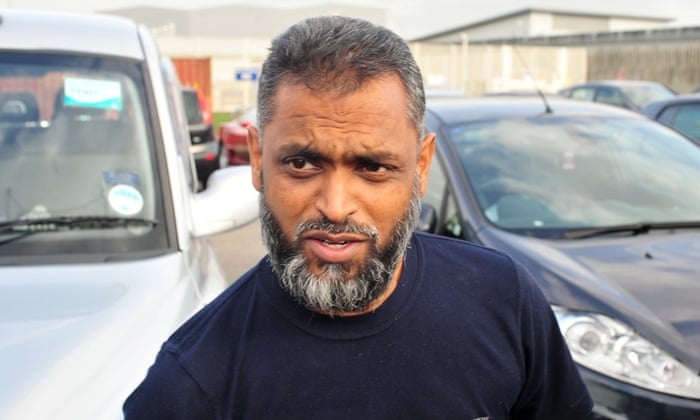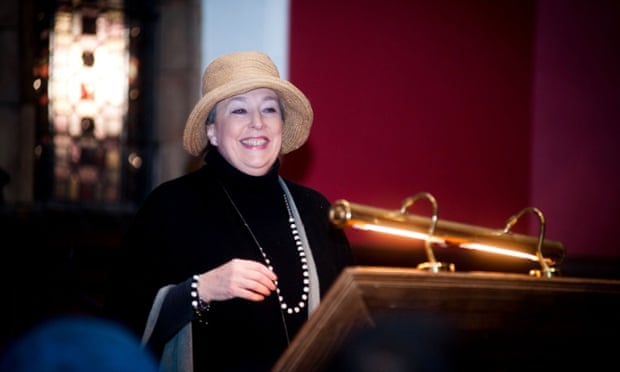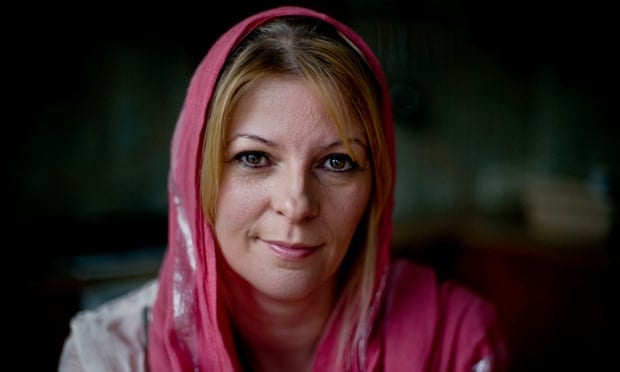
The statement accuses the government of “criminalising” Islam and trying to silence “legitimate critique and dissent”, and decries what it describes as “the ongoing demonisation of Muslims in Britain [and] their values, as well as prominent scholars, speakers and organisations.”
Signatories of the statement include Moazzam Begg, director of outreach for Cage, the organisation that came under fire last week after it sought to explain the radicalisation of Isis killer Mohammed Emwazi. Members of Islamist organisation Hizb ut-Tahrir, which is banned in several countries including Germany, have also signed the statement.
It comes after it was revealed earlier this week that the Home Office is planning a “more assertive” stance against extremism, with a series of measures including imposing penalties on benefit claimants who do not learn English and making visa applicants commit themselves to “British values”.
The statement, seen by the Guardian, reads: “We reject the portrayal of Muslims and the Muslim community as a security threat. The latest act of parliament, the Counter-Terrorism and Security Act, threatens to create a ‘McCarthyite’ witch-hunt against Muslims, with nursery workers, schoolteachers and universities expected to look out for signs of increased Islamic practice as signs of ‘radicalisation’.”
The signatories state that the “Muslim issue” is being exploited for political capital in the runup to the general election.
“Exploiting public fears about security is as dishonourable as exploiting public fears about immigration,” the statement reads. “Both deflect attention from crises in the economy and health service, but are crude and divisive tactics, where the big parties inevitably try to outdo each other in their nastiness.”
Jahangir Mohammed, director of the Centre for Muslim Affairs, said the Counter-Terrorism and Security Act had made the entire Muslim community feel targeted. “Counter-terrorism policies are flawed and alienating,” he said. “This approach is not working and actually backfiring. The entire Muslim community is being blamed for the actions of a violent few and as a result Muslims in Britain feel marginalised.”
He added that the Act would legitimise public servants’ suspicions of Muslims and their beliefs and political views. “This goes against equality policies that state individuals should not be discriminated due to their political and religious beliefs,” he said. “It will serve to destroy good community relations that have been built over many years and will treat Muslims as a suspect community.”
Asked if he thought the statement could backfire, he added: “There are those who may want to look at it in a bad light, but in general Muslims are not worried about this: they are very angry and frustrated with the current climate and policies, which target the Muslim community, and want their voices heard.”
The list of signatories also include the high-profile Muslim converts Yvonne Ridley and Cherie Blair’s half-sister, Lauren Booth, as well as academic Dr Reza Pankhurst, who is a member of Hizb ut-Tahrir and spent four years in an Egyptian jail for trying to recruit others to the group’s cause in 2002.
Another signatory is Shakeel Begg, the imam of the Lewisham Islamic Centre, which was attended by the Woolwich killers, Michael Adebolajo and Michael Adebowale, in the months leading up to attack on Drummer Lee Rigby.
The statement goes on to criticise “the continued public targeting of Muslims through endless ‘anti-terror’ laws,” adding that there have been 10 such pieces of legislation since the year 2000. Such legislation gives “huge power to the state”, while fuelling “media hysteria”, it claims.

Dilly Hussain, a spokesman for the group, said the list of 62 signatories included moderate Islamic thinkers alongside names he acknowledged were considered “controversial”. He pointed to the likes of Arzu Merali of the Islamic Human Rights Commission, and Musharraf Hussain , chief executive and chief imam of the Karimia Institute and a former adviser to the Quilliam Foundation.
Asked why the mainstream Muslim Council of Britain, which could not immediately be contacted for a statement, were not signatories, Hussain said that members of the MCB were signatories, but because the organisation itself represents 500 mosques with different opinions, that made it difficult for the MCB to sign such a statement.
Tauqir Ishaq, a senior spokesman for Muslim Action Forum (MAF), which organised a rally of thousands of British Muslims protesting against cartoons showing the prophet Muhammad, said Muslims were feeling frustrated and disillusioned.
“People are being asked to compromise their faith and many feel there is no alternative here. The current environment has contributed to issues like young people leaving to go to Syria,” he said.
Ishaq added that he had been working on deradicalising people for a number of years, but that the government’s counter-terrorism legislation and Prevent strategy had pushed extremism underground. “Raiding mosques and investigating charities is not the way to tackle extremism,” he said. “Every Muslim is being treated with suspicion and heavy-handed tactics are being used against them. Celebrities like Jimmy Savile and Gary Glitter do not represent all British celebrities: why then do a
minority of individuals who do something wrong become a representation of the entire Islamic faith?”
The combative statement declares a “concern about peace and security for all”, but adds: “We, however, refuse to be lectured on peace-building and harmony by a government that plays divisive politics and uses fear to elicit uncertainty in the general public, whilst maintaining support for dictators across the Muslim world, who continue to brutalise and legitimate political opposition to their tyranny.”

Muslim community rejects the state’s criminalisation of Islam and condemns moves to silence legitimate critique and dissent. This joint statement expresses a position with respect to the ongoing demonisation of Muslims in Britain, their values as well as prominent scholars, speakers and organisations.
We, the undersigned imams, sheikhs, advocates, activists, community leaders, community organisations and student bodies of the Muslim community, make the following points in this regard:
1) We reject the exploitation of Muslim issues and the ‘terror threat’ for political capital, in particular in the runup to a general election. Exploiting public fears about security is as dishonourable as exploiting public fears about immigration.
Both deflect attention from crises in the economy and health service, but are crude and divisive tactics, where the big parties inevitably try to outdo each other in their nastiness.
2) We deplore the continued public targeting of Muslims through endless ‘anti-terror’ laws. There have been around 10 pieces of legislation since the year 2000, all giving huge powers to the state, which have fuelled a media hysteria even though in most cases no crime was committed. This has created a distressing and harmful backlash towards Muslims, especially women and children.
3) We reject the portrayal of Muslims and the Muslim community as a security threat. The latest act of arliament, the Counter-Terrorism and Security Act, threatens to create a ‘McCarthyite’ witch-hunt against Muslims, with nursery workers, schoolteachers and universities expected to look out for signs of increased Islamic practice as signs of ‘radicalisation’. Such a narrative will only further damage social cohesion as it incites suspicion and ill feeling in the broader community.
4) The expedient use of undefined and politically charged words like ‘radicalisation’ and ‘extremism’ is unacceptable as it criminalises legitimate political discourse and criticism of the stance of successive governments towards Muslims domestically and abroad. We strongly oppose political proposals to further ‘tackle’ and ‘crack down’ on such dissenting voices in the Muslim community despite their disavowal of violence and never having supported terrorist acts.
5) Similarly, it is unacceptable to label as ‘extremist’ numerous normative Islamic opinions on a variety of issues, founded on the Qur’an and Sunnah of Prophet Muhammad (peace be upon him), implying there is a link between them and violence, using such labels as an excuse to silence speakers.
6) We affirm our commitment to robust political and ideological debate and discourse for the betterment of humanity at large. The attempts by the state to undermine this bring into question its commitment to its very own purported values and liberal freedoms.
7) We affirm our concern about peace and security for all. We, however, refuse to be lectured on peace-building and harmony by a government that plays divisive politics and uses fear to elicit uncertainty in the general public, whilst maintaining support for dictators across the Muslim world, who continue to brutalise and legitimate political opposition to their tyranny.
8) We affirm our intention to hold on to our beliefs and values, to speak out for what is right and against what is wrong based on our principles, whether that be on matters such as the securitisation of society, corporate hegemony, war and peace, economic exploitation, social and moral issues in society, nationalism and racism. Not to do so would be dangerous and leave our community unguided.
9) We call on all fair-minded people in Britain – including politicians, journalists, academics, bloggers and others concerned about fairness for all – to continue to scrutinise the scare tactics, fear-mongering and machinations of politicians, which do not bode well for societal harmony and only increase the alienation felt and experienced by Britain’s Muslim community.
It is time that politicians stop diverting the attention of the British public away from its domestic crises and disastrous foreign policies by repeatedly playing the ‘Muslim’ or ‘national security’ card.
Signed:
1. Abdurraheem Green, iERA
2. Anjum Anwar, teacher/chair of Woman’s Voice
3. Arzu Merali, Islamic Human Rights Commission
4. Dr Abdul Wahid, Hizb ut-Tahrir, Britain
5. Dr Musharraf Hussain, CEO and chief imam, Karimia Institute
6. Dr Reza Pankhurst, author and academic
7. Dr Saeed Al-Gadi, presenter at Islam Channel
8. Dr Shahrul Hussain, Birmingham
9. Dr Uthman Lateef, Hittin Insitute
10. Hodan Yusuf, journalist
11. Ibrahim Hewitt, Leicester
12. Ibtihal Bsis, barrister, broadcaster, Hizb ut-Tahrir
13. Imam Abdul Wahhab, east London
14. Imam Abdul-Malik Sheikh, imam and khatib, London
15. Imam Abdul Mateen, east London
16. Imam Aziz Ibraheem, Iman Trust Community Centre, St Helens
17. Imam Irfan Patel, Jamiah Masjid, Gillingham
18. Imam Shakeel Begg, Lewisham Islamic Centre
19. Jahangir Mohammed, Centre for Muslim Affairs
20. Lauren Booth, journalist
21. Mahmud Choudhury, secretary, Poplar Shahjalal Masjid
22. Massoud Shadjareh, Islamic Human Rights Commission
23. Moazzam Begg, director of Outreach, Cage
24. Muhammad Mustaqeem Shah, Al-Mustaqeem Centre, Bradford
25. Shaikh Abu Abdissalam, London
26. Shaikh Haitham Haddad, MRDF
27. Shaikh Haitham Tamim, chairman of the Utrujj Foundation
28. Shaikh Khaled Fekry, imam, London
29. Shaikh Omer Hamdoon, Muslim Association of Britain
30. Shaikh Sulaiman Gani, south London
31. Shaikh Zuber Karim, Intelligence Finance Consultancy
32. Shaikh Tauqir Ishaq, CEO, Hijaaz College
33. Ustadh Kamal Abu Zahra, lecturer on Islamic studies, London
34. Yusuf Chambers, freelance community activist
35. Yusuf Patel, SRE Islamic
36. Azad Ali, Muslim Safety Forum
37. Asghar Bukhari, Muslim Public Affairs Committee, UK
38. Roshan Muhammad Salih, broadcaster and journalist
39. Ghulam Haydar, director, Myriad Foundation
40. Shoaib Khalid Bhatti, Muslim Lobby, Scotland
41. Dr Daud Abdullah, British Muslim Initiative
42. Shaikh Chokri Majoli, imam, London
43. Yvonne Ridley, vice-president, European Muslim League
44. Muhammad Shofiq, Ramadan Foundation, Rochdale
45. Hasan Al Katib, journalist
46. Mazhar Khan, Manchester Muslim Forum
47. Saaqib Abu Ishaaq, Project Medinah, Rochdale
48. Omar Ali, chair, Brighton and Hove Muslim Community
49. Sofia Ahmed, Muslim Women Against Femen
50. Nalini Naidoo, Newham Muslim Women’s Association
51. Irfan Hussain, Bradford Dawah Centre
52. Leyla Habibti, humanitarian activist
53. Tasmin Nazeer, freelance journalist
54. Ali Anees, Eccles Mosque
55. Saeed Akhtar, Cheadle Mosque
56. Yousef Dar, Community Safety Forum, Manchester
57. Dr Shameel Islam-Zulfiqar, humanitarian campaigner
58. Majid Freem, humanitarian aid worker, friend of Alan Henning
59. Laura Stuart, humanitarian aid worker, journalist and activist
60. Fatima Barkatula, scholar and director of Seeds of Change
61. Ibrahim Kala, Bolton Council of Mosques






































No comments:
Post a Comment